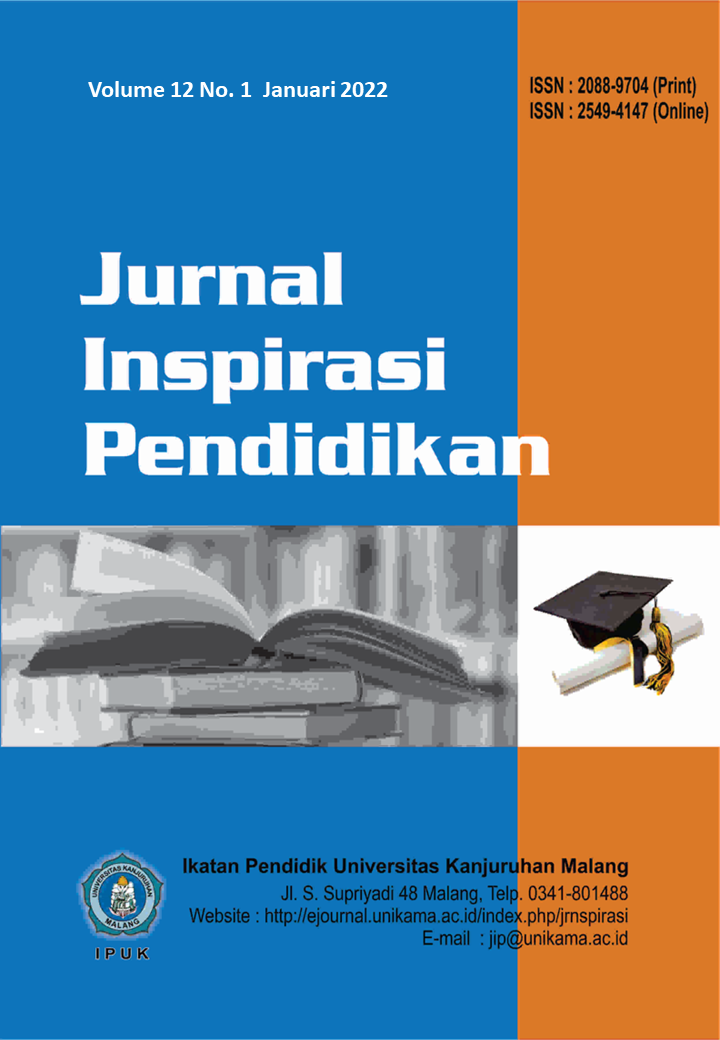Achievement Motivation, Affiliation Motivation, and Student Learning Behavior During The Covid-19 Pandemic: A Structural Equation Model
Main Article Content
Abstract
Learning behavior can be driven by motivation, when the quality of this motivation is high it will have a positive impact on welfare, but when motivation is of low quality it will have a detrimental impact on welfare. This study aims to determine the relationship between achievement motivation, affiliation motivation, and student learning behavior during the Covid-19 pandemic. Research design correlation with SEM analysis techniques. The subjects that will be used consist of 2941 junior high school students who were selected using the cluster random sampling technique. The research data was taken using 3 psychological scales, namely achievement motivation, affiliation motivation, and learning behavior. The data that has been collected is then analyzed using Structural Equation Modeling (SEM) based on Partial Least Square (PLS) assisted by Warp – PLS version 7.0. The results of the analysis show that the coefficient of achievement motivation on learning behavior is 0.64. It shows that achievement motivation is significantly correlated. The coefficient of affiliated motivation on learning behavior is 0.1. It shows that affiliation motivation is influential but not significant, even though affiliation motivation supports learning behavior.
Article Details
The journal allows the author(s) to hold the copyright without restrictions.
References
Azmi, R. A., Rukun, K., & Maksum, H. (2020). Analisis Kebutuhan Pengembangan Media Pembelajaran Berbasis Web Mata Pelajaran Administrasi Infrastruktur Jaringan. Jurnal Imiah Pendidikan Dan Pembelajaran, 4(2), 303–314.
Dweck, C. S. (2013). Self-theories: Their role in motivation, personality, and development. Psychology press.
Fang, J., Tang, L., Yang, J., & Peng, M. (2019). Social interaction in MOOCs: The mediating effects of immersive experience and psychological needs satisfaction. Telematics and Informatics, 39, 75–91.
Goldstein, S. E., Boxer, P., & Rudolph, E. (2015). Middle school transition stress: Links with academic performance, motivation, and school experiences. Contemporary School Psychology, 19(1), 21–29.
Gottfried, A. E., Marcoulides, G. A., Gottfried, A. W., & Oliver, P. H. (2013). Longitudinal pathways from math intrinsic motivation and achievement to math course accomplishments and educational attainment. Journal of Research on Educational Effectiveness, 6(1), 68–92.
Hoq, M. Z. (2020). E-Learning during the period of pandemic (COVID-19) in the kingdom of Saudi Arabia: an empirical study. American Journal of Educational Research, 8(7), 457–464.
Koenka, A. C., Linnenbrink-Garcia, L., Moshontz, H., Atkinson, K. M., Sanchez, C. E., & Cooper, H. (2021). A meta-analysis on the impact of grades and comments on academic motivation and achievement: a case for written feedback. Educational Psychology, 41(7), 922–947.
Latan, H., & Ghozali, I. (2012). Partial Least Square: Konsep, Teknik, dan Aplikasi SmartPLS 2.0 M3. Semarang: Badan Penerbit Universitas Diponegoro.
Meeter, M., Bele, T., den Hartogh, C., Bakker, T., de Vries, R. E., & Plak, S. (2020). College students’ motivation and study results after COVID-19 stay-at-home orders.
Meo, S. A., Abukhalaf, A. A., Alomar, A. A., Sattar, K., & Klonoff, D. C. (2020). COVID-19 pandemic: impact of quarantine on medical students’ mental wellbeing and learning behaviors. Pakistan Journal of Medical Sciences, 36(COVID19-S4), S43.
Petlák, E., Tistanová, K., & Juszczyk, S. (2019). Undesirable Behaviour of Pupils Towards Teachers in Slovak Schools.
Ryan, R. M., & Deci, E. L. (2017). Self-determination theory: Basic psychological needs in motivation, development, and wellness. Guilford Publications.
Senko, C., & Dawson, B. (2017). Performance-approach goal effects depend on how they are defined: Meta-analytic evidence from multiple educational outcomes. Journal of Educational Psychology, 109(4), 574–598. https://doi.org/10.1037/edu0000160
Servet, A., & Çelik, O. T. (2021). Analysis of the relationships between academic motivation, engagement, burnout and academic achievement with structural equation modelling. International Journal of Contemporary Educational Research, 8(2), 118–130.
Smith, J., Guimond, F.-A., Bergeron, J., St-Amand, J., Fitzpatrick, C., & Gagnon, M. (2021). Changes in Students’ Achievement Motivation in the Context of the COVID-19 Pandemic: A Function of Extraversion/Introversion? Education Sciences, 11(1), 30.
Son, C., Hegde, S., Smith, A., Wang, X., & Sasangohar, F. (2020). Effects of COVID-19 on college students’ mental health in the United States: Interview survey study. Journal of Medical Internet Research, 22(9), e21279.
Sunar, A. S., White, S., Abdullah, N. A., & Davis, H. C. (2016). How learners’ interactions sustain engagement: a MOOC case study. IEEE Transactions on Learning Technologies, 10(4), 475–487.
Yang, X., Li, D., Liu, X., & Tan, J. (2021). Learner behaviors in synchronous online prosthodontic education during the 2020 COVID-19 pandemic. The Journal of Prosthetic Dentistry, 126(5), 653–657.

